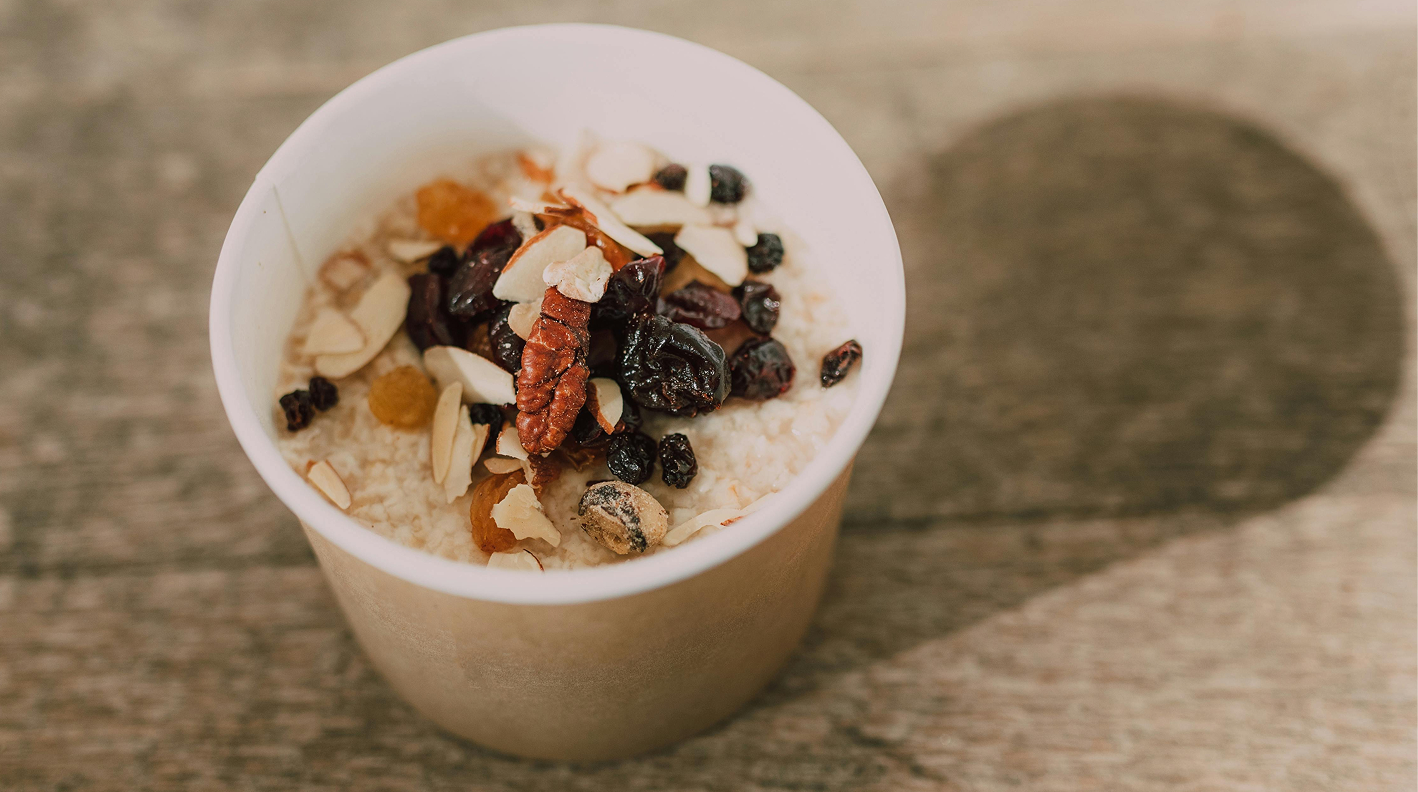Non-sugar sweeteners: What to look out for when satisfying your sweet tooth

Key takeaways
- Synthetic sweeteners like sucralose and aspartame may carry potential long-term risks, while natural options such as stevia and monk fruit show promising metabolic benefits.
- Sugar alcohols like xylitol and erythritol can be lower-calorie alternatives, but may still impact gut health or cause digestive discomfort in excess.
- The healthiest approach focuses on minimising added sugars altogether and choosing natural sweeteners that support better blood sugar balance and microbiome diversity.
Our bodies are complex so navigating healthy nutrition can be challenging, even for the health-inclined.
Guidelines are shifting and sugar is now the focus after a long, slow journey to bust the myth that saturated fats cause heart disease and a whole host of other intuitive reasons [1][2][3].
Nevertheless, sugar still sneaks into every occasion in the modern diet, from breakfast to dinner, perhaps because we’re so hooked on the opioid/dopamine kick from sugar [4].
In response, many non-sugar sweeteners have emerged, both synthetic and natural, over the years so we must ask the question: can we have our cake and eat it too?
Not all non-sugar sweeteners are 'equal' — despite the familiar brand name — so let’s evaluate a few of the most common ones, so you know what to look for on the back of the pack and which sweeteners are the healthiest options.
Sucralose
Sucralose (sweetener 955) is chlorinated sucrose (yes, chlorinated) and it's one of the most common synthetic sweeteners as it’s cheap, potent and palatable. But, there’s emerging evidence that it ferments in the gut into sucralose acetate, a highly genotoxic compound [5].
Fun fact, it was first considered upon its discovery in 1975 to be a potential insecticide as it shares similarities with DDT and other organochlorines — perhaps it’s better suited for cockroach control instead [6][7].
Aspartame
Aspartame (sweetener 951) is a methyl ester of two amino acids (phenylalanine and aspartic acid). It's another common synthetic sweetener, often found in ‘diet drinks’, that may increase the risk of metabolic disease [8].
Xylitol
Xylitol (sweetener 967) is a sugar alcohol with 40% less caloric density than glucose and is a common ingredient in sugar-free gum or ice cream.
It raises blood sugar but appears to have some benefits on visceral fat, a leading indicator of cardiometabolic disease [9]. The main drawback is the effect of high doses on gastric distress and potential changes to the gut microbiome [10].
Erythritol
Erythritol (sweetener 968) is another sugar alcohol but has fewer disadvantages than Xylitol and the other polyols as it has zero calories and no effect on insulin. However, gastric distress in excess is still a concern.
Stevia
Stevia (sweetener 960) is a natural sweetener that is zero-calorie and confers potential benefits to improved blood sugar control, insulin sensitivity and microbiome diversity, which is a win-win [11][12][13].
Monk fruit extract
Monk fruit extract is another natural sweetener that’s becoming popular and has similar potential benefits to Stevia, however, the global supply chain is not as established [14].
The tide is turning on synthetic sweeteners — even the World Health Organisation is calling out potential long-term risks of increased cardiometabolic disease [15].
I try to diligently avoid packaged products containing Sucralose as I have a family history of early-onset colorectal cancer. But, I do have a sweet tooth so I carry a Stevia dropper in my briefcase and keep raw cacao at home for when I need some bitterness to help control my cravings.
Be careful when buying Stevia or Monk Fruit sweeteners as many brands dilute down with 95% erythritol.
Take the guesswork out of what to eat
While understanding sweeteners is key, it’s only one part of transforming your health.
Compound's Body Transformation Programme combines medical treatments, prescriber support and personalised guidance to help you not just lose weight but completely transform your body and health for life.
- Breakthrough medication: Lose up to 21% of your body weight in 72 weeks with once-weekly, clinically proven treatment. It keeps you feeling fuller for longer, so eating less feels natural. Pair them with the Compound Code to lock results in for good.
- Compound Code: Our medication creates opportunity — Compound helps you seize it. Our proven system makes your treatment work harder. The Compound Code builds the muscle, energy, and fitness that medication alone can't deliver. Our holistic approach transforms not just how you look, but how you feel and function daily. So when you eventually finish treatment, your results don't disappear with it.
Our bodies are complex so navigating healthy nutrition can be challenging, even for the health-inclined.
Guidelines are shifting and sugar is now the focus after a long, slow journey to bust the myth that saturated fats cause heart disease and a whole host of other intuitive reasons [1][2][3].
Nevertheless, sugar still sneaks into every occasion in the modern diet, from breakfast to dinner, perhaps because we’re so hooked on the opioid/dopamine kick from sugar [4].
In response, many non-sugar sweeteners have emerged, both synthetic and natural, over the years so we must ask the question: can we have our cake and eat it too?
Not all non-sugar sweeteners are 'equal' — despite the familiar brand name — so let’s evaluate a few of the most common ones, so you know what to look for on the back of the pack and which sweeteners are the healthiest options.
Sucralose
Sucralose (sweetener 955) is chlorinated sucrose (yes, chlorinated) and it's one of the most common synthetic sweeteners as it’s cheap, potent and palatable. But, there’s emerging evidence that it ferments in the gut into sucralose acetate, a highly genotoxic compound [5].
Fun fact, it was first considered upon its discovery in 1975 to be a potential insecticide as it shares similarities with DDT and other organochlorines — perhaps it’s better suited for cockroach control instead [6][7].
Aspartame
Aspartame (sweetener 951) is a methyl ester of two amino acids (phenylalanine and aspartic acid). It's another common synthetic sweetener, often found in ‘diet drinks’, that may increase the risk of metabolic disease [8].
Xylitol
Xylitol (sweetener 967) is a sugar alcohol with 40% less caloric density than glucose and is a common ingredient in sugar-free gum or ice cream.
It raises blood sugar but appears to have some benefits on visceral fat, a leading indicator of cardiometabolic disease [9]. The main drawback is the effect of high doses on gastric distress and potential changes to the gut microbiome [10].
Erythritol
Erythritol (sweetener 968) is another sugar alcohol but has fewer disadvantages than Xylitol and the other polyols as it has zero calories and no effect on insulin. However, gastric distress in excess is still a concern.
Stevia
Stevia (sweetener 960) is a natural sweetener that is zero-calorie and confers potential benefits to improved blood sugar control, insulin sensitivity and microbiome diversity, which is a win-win [11][12][13].
Monk fruit extract
Monk fruit extract is another natural sweetener that’s becoming popular and has similar potential benefits to Stevia, however, the global supply chain is not as established [14].
The tide is turning on synthetic sweeteners — even the World Health Organisation is calling out potential long-term risks of increased cardiometabolic disease [15].
I try to diligently avoid packaged products containing Sucralose as I have a family history of early-onset colorectal cancer. But, I do have a sweet tooth so I carry a Stevia dropper in my briefcase and keep raw cacao at home for when I need some bitterness to help control my cravings.
Be careful when buying Stevia or Monk Fruit sweeteners as many brands dilute down with 95% erythritol.
Take the guesswork out of what to eat
While understanding sweeteners is key, it’s only one part of transforming your health.
Compound's Body Transformation Programme combines medical treatments, prescriber support and personalised guidance to help you not just lose weight but completely transform your body and health for life.
- Breakthrough medication: Lose up to 21% of your body weight in 72 weeks with once-weekly, clinically proven treatment. It keeps you feeling fuller for longer, so eating less feels natural. Pair them with the Compound Code to lock results in for good.
- Compound Code: Our medication creates opportunity — Compound helps you seize it. Our proven system makes your treatment work harder. The Compound Code builds the muscle, energy, and fitness that medication alone can't deliver. Our holistic approach transforms not just how you look, but how you feel and function daily. So when you eventually finish treatment, your results don't disappear with it.
- https://drhyman.com/blog/2014/09/08/saturated-fat-get-bad-rep/?_kx=rIiA-zjy9rmoR5eXjb5QyA%3D%3D.MHU8j4
- https://www.ncbi.nlm.nih.gov/pmc/articles/PMC9794145/?_kx=rIiA-zjy9rmoR5eXjb5QyA%3D%3D.MHU8j4
- https://openheart.bmj.com/content/1/1/e000032?_kx=rIiA-zjy9rmoR5eXjb5QyA%3D%3D.MHU8j4
- https://www.ncbi.nlm.nih.gov/pmc/articles/PMC2235907/?_kx=rIiA-zjy9rmoR5eXjb5QyA%3D%3D.MHU8j4
- https://pubmed.ncbi.nlm.nih.gov/37246822/
- https://www.scrible.com/view/source/M6QA0400H01SGJ783005SBBH886CMGAA:744741088/?_kx=rIiA-zjy9rmoR5eXjb5QyA%3D%3D.MHU8j4
- https://academic.oup.com/jee/article/117/1/268/7429346
- https://diabetesjournals.org/care/article/46/9/1681/153434/Artificial-Sweeteners-and-Risk-of-Type-2-Diabetes?_kx=rIiA-zjy9rmoR5eXjb5QyA%3D%3D.MHU8j4
- https://www.ncbi.nlm.nih.gov/pmc/articles/PMC3128359/?_kx=rIiA-zjy9rmoR5eXjb5QyA%3D%3D.MHU8j4
- https://www.sciencedirect.com/science/article/pii/S2161831322001983?_kx=rIiA-zjy9rmoR5eXjb5QyA%3D%3D.MHU8j4
- https://pubmed.ncbi.nlm.nih.gov/14681845/
- https://pubmed.ncbi.nlm.nih.gov/16278783/
- https://www.mdpi.com/2076-2607/10/4/744?_kx=rIiA-zjy9rmoR5eXjb5QyA%3D%3D.MHU8j4
- https://www.ncbi.nlm.nih.gov/pmc/articles/PMC10495570/?_kx=rIiA-zjy9rmoR5eXjb5QyA%3D%3D.MHU8j4
- https://www.who.int/publications/i/item/9789240046429?_kx=rIiA-zjy9rmoR5eXjb5QyA%3D%3D.MHU8j4












